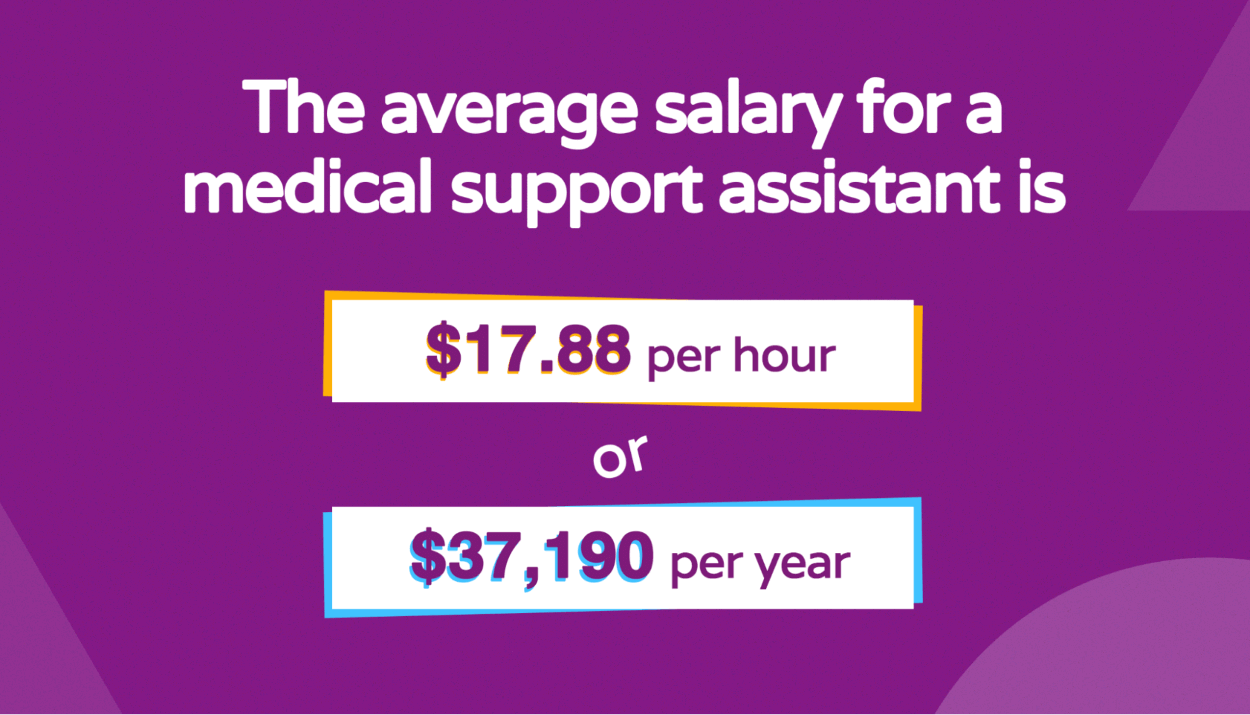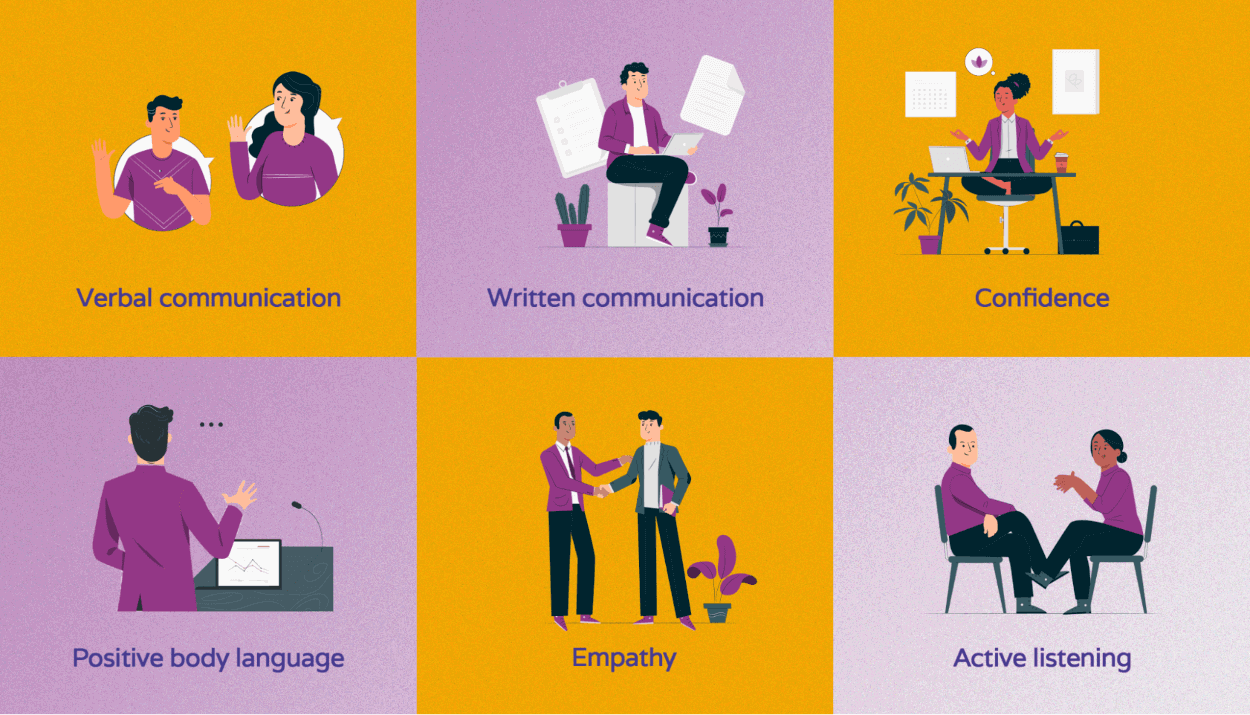It takes a dedicated team to keep a busy healthcare environment running smoothly.
From hospitals to specialty clinics, support staff help health professionals give patients a positive experience.
Medical support assistants are valuable team members. They perform a mix of administrative and medical tasks, giving you more time to focus on your patients.
However, hiring a new team member isn't always easy. Finding someone with the right skills can be difficult, and it can be an expensive process.
Do you need a medical support assistant? We'll help you decide.
Keep reading to find out what these workers do and their average salary. Plus, we'll tell you about our virtual alternative and how much it could save you.
What is a medical support assistant?
Medical support assistants work in medical facilities, hospitals, and private practices. Many of their tasks are administrative, helping to reduce the workload of physicians and other healthcare professionals.
Medical support assistants are involved with medical office procedures, including scheduling appointments, managing inventory, and typing up documents. With the right training, medical support assistants can educate patients, check vital signs, and update medical records.
Demand for medical assisting professions is growing. By 2031, the job outlook is set to rise by 16%.
If you're feeling overwhelmed, a medical support assistant could be a good fit for your practice. However, it's not the only solution. An experienced Healthcare Virtual Assistant (HVA) from Hello Rache can take care of all your administrative tasks. From transcription to calendar management, we have you covered.
Want to find out how we can improve your processes and take pressure off your healthcare team? Get in touch today to learn more.
How much does a medical support assistant make?
In the United States, the average base salary for a medical support assistant is $17.88 per hour — an annual salary of $37,190.
The wage can vary depending on location and the assistant’s level of education.
As an example, a medical support assistant in Washington State has one of the highest salaries in the US. The average income at this location is $47,320 per year.

Alaska is another high-paying area, where medical support assistants make an average of $46,390 per year. California is slightly lower, with an average of $44,780 per year. Compare this to Massachusetts, where the average annual salary is $44,200.
Need administrative support? There's an affordable alternative that won't break your budget. A Healthcare Virtual Assistant (HVA) from Hello Rache comes at a flat rate of just $9.50 per hour.
With an HVA, there's no sick time, overtime, or benefits to worry about. Any extra tasks can be completed at your convenience at a fraction of the cost of a full-time employee. Get in touch to learn more.
What does a medical support assistant do?
Thinking of getting help from a medical support assistant? Let's take a look at what they do.
1. Update patient records
Healthcare providers commonly use electronic health records (EHRs). With EHRs instead of paper files, a patient's medical records are digital.
These digital files include patient contact details, medical histories, and treatment plans. For example, if a patient is prescribed medication or referred to a specialist, their record will need to be updated.
Maintaining electronic patient files can be time-consuming. This is where a medical support assistant comes in. They can update a patient’s record either during or after their appointment.
However, you don't need to hire an employee to do this task because transcription is a service offered by our HVAs. They can transcribe your documents accurately from any recording. Or, they can update these files in real time via video chat or phone.
2. Schedule appointments
Scheduling patient appointments is a common job duty for medical support assistants.
Your appointment schedule can fill up quickly, and a medical support assistant will use their organizational skills to manage busy calendars.
Medical support assistants can add appointments over the phone or via an online booking system. Before the day of the appointment, they can contact the patient to make sure they're still going to attend. Depending on your requirements, this reminder may be in the form of a phone call or an SMS.

If there's a cancellation, it needs to be removed from the calendar and rescheduled. A medical support assistant can take care of this, too.
Did you know an HVA can take care of your scheduling tasks? From answering phone calls to sending reminders, you can rely on a member of Hello Rache’s experienced team.
3. Balance patient accounts
Keeping on top of payments is important for all medical clinics. Balancing accounts helps business owners set budgets, order supplies, and pay their team members.
Medical support assistants are responsible for balancing patient accounts. They process payments and issue receipts.
They have cash-handling skills and math skills, and can accept payments via cash or credit card. If a patient has an overdue payment, the medical support assistant will send them a payment reminder.
Medical support assistants also call insurance companies to make sure policies are up to date. They can also help patients fill out complicated insurance forms.
Did you know our HVAs have bookkeeping skills? They can enter data and make phone calls to follow up on overdue payments.
4. Manage inventory
Medical centers use a range of supplies. There are medical supplies, such as bandages, masks, and gloves, as well as office supplies, such as stationery, ink cartridges, and coffee.
Medical support assistants make sure all supplies are restocked as needed. They often use an inventory management system and place orders when stock runs low. These team members build relationships with suppliers and can negotiate bulk pricing.
When packages arrive, medical support assistants can be there to receive them. They’ll check the orders and unpack inventory. If there is an error or an item is damaged, they contact the supplier.
5. Collect health information
Before surgeries and consultations, doctors may require basic health information from the patient. Medical support assistants can document patient details to help prepare the doctor for the procedure.
They can also add pertinent survey information and confirm personal details, including their age, address, and telephone number. Medical support assistants may also weigh and measure patients, check and accurately document the patient's vital signs, or bring them gowns to wear or consent forms to sign.

They use their excellent communication skills to make patients feel comfortable and answer any questions they may have.
6. Create rosters
Medical support assistants may help create rosters. When there are multiple employees in an office, managing shifts can be time-consuming. There can be requests for time off and flexible work arrangements to consider.
Whether it's as part of an office team or nursing staff, medical support assistants can be part of the planning process. And if someone calls in sick, the assistant can help find someone to fill in.
Medical support assistants can also keep a record of the doctor's schedules. If a physician is planning to be away from work, the assistant will make sure patients can't make appointments during that time.
What skills does a medical support assistant need?
If you're looking for someone to join your workforce, there are a few things you should look for. Whether it's a medical support assistant or a Healthcare Virtual Assistant, strong administrative skills and interpersonal skills are must-haves.
What else should you put on your list? Here are the skills the ideal candidate should have:
1. Customer service
Your medical support assistant will work closely with patients. They may also provide basic patient care. The aim is to give all visitors a positive experience, starting from their first impression.
Medical support assistants need excellent customer service skills. When someone visits your healthcare facility, they'll greet them in a friendly manner. They'll answer questions and provide patient education.
Answering phones is part of a medical support assistant’s job, and callers expect someone who’s friendly, knowledgeable, and helpful on the other end of the line.
2. Communication
All medical staff need excellent communication skills. Daily duties may include greeting patients, providing information, and collaborating with other healthcare professionals.
Communication has a few key components. First, there's verbal communication. Medical support assistants should be comfortable verbally communicating with people from a variety of backgrounds.

Confidence, empathy, and active listening are also important communication skills.
Body language is another type of communication. Positive body language includes smiling, making good eye contact, and avoiding crossing arms.
Finally, there's written communication. Healthcare teams often communicate via email and letters. Strong writing skills is another essential skill.
Rest assured that the HVAs at Hello Rache can communicate effectively both over the phone and in writing.
3. Time management
Medical support assistants often have to juggle administrative and clinical tasks at the same time. To be successful, they need to have excellent time-management skills.
The workday can be busy, and you want your team to arrive on time. Medical support assistants will need to manage their breaks and use their organizational skills to complete their daily tasks on time.
There are also specific tasks that require time management. For example, careful planning is essential to managing calendars and creating rosters.
4. Bookkeeping
We've discussed some of the accounting tasks medical support assistants can do. For example, they can balance accounts, create invoices, and send reminders.
Basic bookkeeping skills are beneficial in any medical office. Medical support assistants should have math skills and pay careful attention to detail to make sure mistakes are avoided.
Look for someone who can use accounting programs such as MYOB, Xero, and Quickbooks. They should also know how to navigate Microsoft Excel and Google Sheets.
Most people with bookkeeping experience are comfortable with other types of data entry. For example, they can update patient details, manage inventory, and collect email addresses.
5. Typing
Another skill to look for in a medical support assistant is typing. Office tasks often require a computer, and tech-savvy workers will be more productive.
If you have an advanced medical support assistant who already has administrative experience, they'll probably have fast, accurate typing skills. Look for someone who can type at least 60 words per minute with a high accuracy rate.
If transcription is part of the role, the person will need to understand medical terminology. Knowing jargon will help reduce errors while typing.
Need help typing documents? The team at Hello Rache is experienced in this area. They can transcribe and input data quickly and efficiently.
What about a virtual assistant?
Your medical office can get help with clerical tasks without having to hire a new employee. A Healthcare Virtual Assistant (HVA) can do many of the same duties as a medical support assistant.
Plus, our team members have all of the must-have skills on our list, including customer service, communication, time management, bookkeeping, and typing skills.
HVAs also have strong interpersonal skills and can help you manage your patient interactions. For example, they can answer phone calls, schedule appointments, follow up with insurance companies, and collaborate with your team of healthcare workers.

Need help with general bookkeeping, balancing accounts, or data entry? Our team can do that, too.
With strong administrative skills, updating medical records is a breeze. Our team comes with medical work experience, and most of our HVAs have already been involved in the healthcare system. For example, some have worked as nurses, while others have worked as assistants in medical facilities.
Our HVAs are HIPAA-trained and know the importance of maintaining patient privacy. They're confident working remotely and are ready to work when you are. Even if you need support after hours or on weekends, an HVA can be there.
An HVA is an affordable medical support assistant option. With their efficient communication and computer skills, you can delegate any extra tasks to them. This benefits your in-house team of healthcare professionals by freeing them to assist patients in person.
Is a medical support assistant right for your practice?
If your medical practice needs support, it might be time to hire a new employee. One option is a medical support assistant.
These workers do a range of tasks, including updating patient records, scheduling appointments, and balancing patient accounts. They can also manage your inventory, collect health information, and create rosters.
Some of the top skills to look for include customer service, communication, time management, bookkeeping, and typing skills.
Remember, the average salary for a medical support assistant is much higher than it is for an HVA. If the tasks you need assistance with are primarily administrative, consider a virtual assistant. There are no commitments, and you can cancel at any time.
What are you waiting for? Contact Hello Rache today.




